Meet the World’s 5 Most Powerful Leaders!
Ankita Rai | Fri, 30 May 2025
In 2025, global politics is shaped by powerful leaders from diverse nations. Narendra Modi leads India into a third term with strong public support and bold reforms. Claudia Sheinbaum breaks barriers as Mexico’s first female president, promoting sustainability and equity. Donald Trump returns as U.S. President, reshaping global diplomacy. Vladimir Putin begins a fifth term in Russia, reinforcing nationalistic policies. Meanwhile, Xi Jinping remains a central figure in global power dynamics, emphasizing China’s strategic rise. These leaders define the political landscape, each steering their nations through a rapidly changing world.
( Image credit : MyLifeXP )
Photo:
In a world that seems to be changing minute by minute politically, digitally, emotionally some leaders don't just surf the wave. They build the wave. With seismic policy changes, record-breaking victories, or contentious choices, a few select world leaders in 2025 are not only transforming their own countries but reshaping the global narrative.
Get to know the five who are at the center of it all.
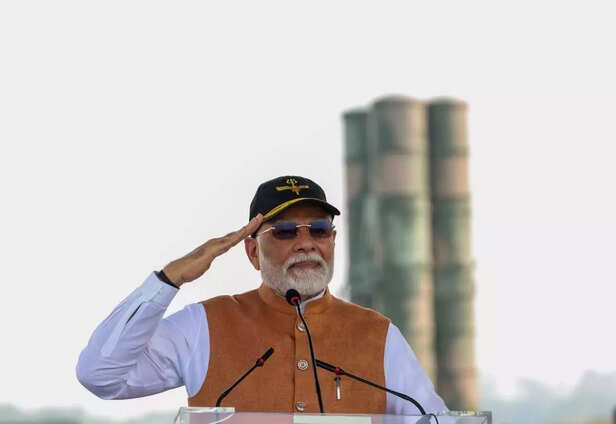
If political longevity were a race, Narendra Modi is running to win—and win big. Having just secured a third consecutive term in 2024, he stands tall as India’s undisputed political giant. With a staggering 75 percent approval rating, he’s not just popular at home—he is currently the most popular leader in the world. Under Modi’s leadership, India is surging ahead with economic reforms, digital transformation, and an increasingly assertive foreign policy. From Silicon Valley collaborations to defense diplomacy with global powers, India’s global posture has never been more confident. Whether praised or critiqued, Modi's voice echoes far beyond India’s borders.
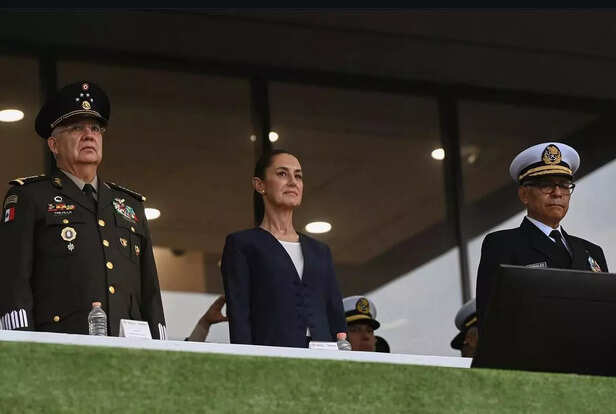
A scientist elected as president? That’s rare, and in Mexico, it’s historic. Claudia Sheinbaum became the country’s first woman president in 2024 and brought a calm, data-driven approach to a landscape often riddled with turbulence.With approval ratings hovering around 66 percent, her leadership reflects the public’s faith in her mission—fighting climate change, cleaning up governance, and using technology for social progress. Sheinbaum is showing the world that leadership grounded in both intellect and empathy can not only survive but thrive.
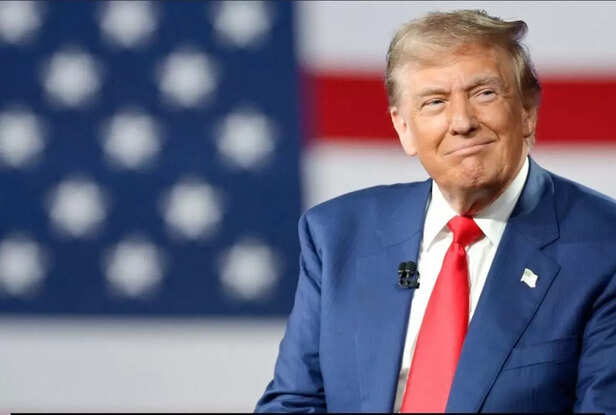
Yes, he’s back. In January 2025, Donald Trump returned to the Oval Office for a rare second non-consecutive term, and just like before, he’s igniting debate across the world. At home, he is reinforcing his America-first approach through economic nationalism and tighter immigration controls. Globally, his diplomatic stance remains hard-edged, especially in foreign trade and military alliances. Whether you’re cheering him or challenging him, Trump’s second act is already shifting the tone of international politics.
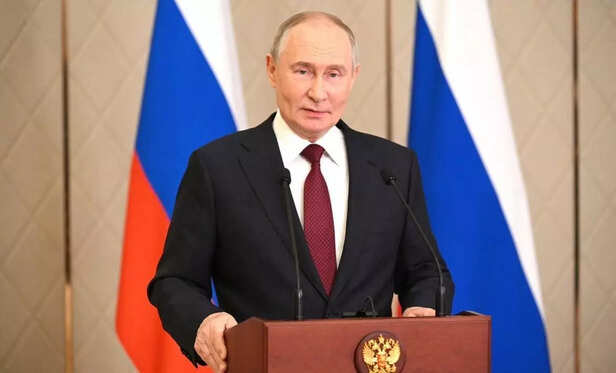
Vladimir Putin doesn’t just hold power—he symbolizes it. Re-elected in 2024 for a fifth term, he remains a dominant force in a nation where governance, history, and control are closely intertwined. Despite mounting international criticism and internal resistance, Putin continues to guide Russia with a focus on military strength, national sovereignty, and energy dominance. His geopolitical influence spans from Eastern Europe to the Middle East and continues to shape the strategic chessboard.
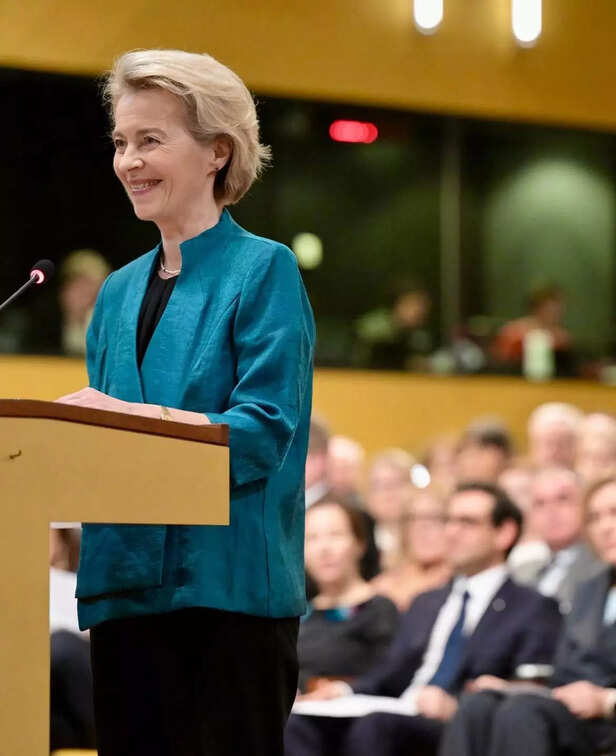
If the European Union had a face in 2025, it would be Ursula von der Leyen. Re-elected in 2024, she is leading the EU with a calm yet determined hand during times of immense global uncertainty. She is championing green energy, digital innovation, and unity among EU member states. Her approach is grounded in steady action rather than loud declarations, yet her leadership continues to define the EU’s role as a resilient, forward-thinking global power.
These five leaders may come from different ideologies, backgrounds, and regions, but they share one key trait: the ability to influence events far beyond their own borders. As the world navigates through economic shifts, climate challenges, and geopolitical tension, their decisions are shaping what happens next. They’re not just leading countries—they’re steering the global conversation.
Unlock insightful tips and inspiration on personal growth, productivity, and well-being. Stay motivated and updated with the latest at My Life XP.
Get to know the five who are at the center of it all.
1. Narendra Modi – Prime Minister of India

Picture credit : Instagram
( Image credit : MyLifeXP )
If political longevity were a race, Narendra Modi is running to win—and win big. Having just secured a third consecutive term in 2024, he stands tall as India’s undisputed political giant. With a staggering 75 percent approval rating, he’s not just popular at home—he is currently the most popular leader in the world. Under Modi’s leadership, India is surging ahead with economic reforms, digital transformation, and an increasingly assertive foreign policy. From Silicon Valley collaborations to defense diplomacy with global powers, India’s global posture has never been more confident. Whether praised or critiqued, Modi's voice echoes far beyond India’s borders.
2. Claudia Sheinbaum – President of Mexico

Picture credit : Instagram
( Image credit : MyLifeXP )
A scientist elected as president? That’s rare, and in Mexico, it’s historic. Claudia Sheinbaum became the country’s first woman president in 2024 and brought a calm, data-driven approach to a landscape often riddled with turbulence.With approval ratings hovering around 66 percent, her leadership reflects the public’s faith in her mission—fighting climate change, cleaning up governance, and using technology for social progress. Sheinbaum is showing the world that leadership grounded in both intellect and empathy can not only survive but thrive.
3. Donald Trump – President of the United States

Picture credit : Instagram
( Image credit : MyLifeXP )
Yes, he’s back. In January 2025, Donald Trump returned to the Oval Office for a rare second non-consecutive term, and just like before, he’s igniting debate across the world. At home, he is reinforcing his America-first approach through economic nationalism and tighter immigration controls. Globally, his diplomatic stance remains hard-edged, especially in foreign trade and military alliances. Whether you’re cheering him or challenging him, Trump’s second act is already shifting the tone of international politics.
4. Vladimir Putin – President of Russia

Picture credit : Instagram
( Image credit : MyLifeXP )
Vladimir Putin doesn’t just hold power—he symbolizes it. Re-elected in 2024 for a fifth term, he remains a dominant force in a nation where governance, history, and control are closely intertwined. Despite mounting international criticism and internal resistance, Putin continues to guide Russia with a focus on military strength, national sovereignty, and energy dominance. His geopolitical influence spans from Eastern Europe to the Middle East and continues to shape the strategic chessboard.
5. Ursula von der Leyen – President of the European Commission

Picture credit : Instagram
( Image credit : MyLifeXP )
If the European Union had a face in 2025, it would be Ursula von der Leyen. Re-elected in 2024, she is leading the EU with a calm yet determined hand during times of immense global uncertainty. She is championing green energy, digital innovation, and unity among EU member states. Her approach is grounded in steady action rather than loud declarations, yet her leadership continues to define the EU’s role as a resilient, forward-thinking global power.
Final Thoughts
These five leaders may come from different ideologies, backgrounds, and regions, but they share one key trait: the ability to influence events far beyond their own borders. As the world navigates through economic shifts, climate challenges, and geopolitical tension, their decisions are shaping what happens next. They’re not just leading countries—they’re steering the global conversation.
Unlock insightful tips and inspiration on personal growth, productivity, and well-being. Stay motivated and updated with the latest at My Life XP.
Frequently Asked Questions (FAQs)
- Who are the most powerful political leaders in 2025?
Narendra Modi, Claudia Sheinbaum, Donald Trump, Vladimir Putin, and Ursula von der Leyen. - What makes these leaders influential globally?
Their policies and decisions significantly impact their countries and international affairs. - How do these leaders’ priorities differ?
They range from economic reforms and sustainability to national security and diplomatic unity.









